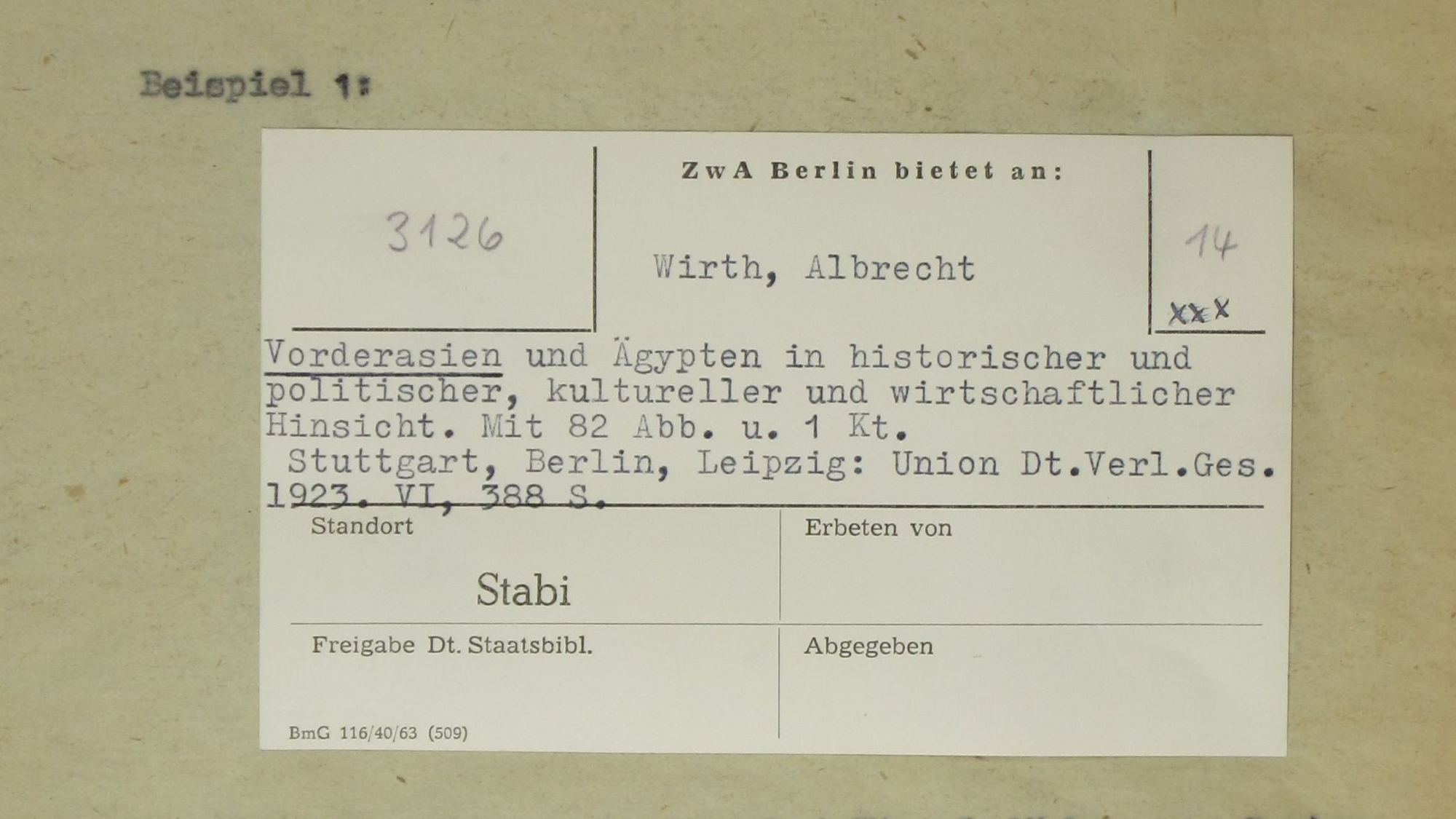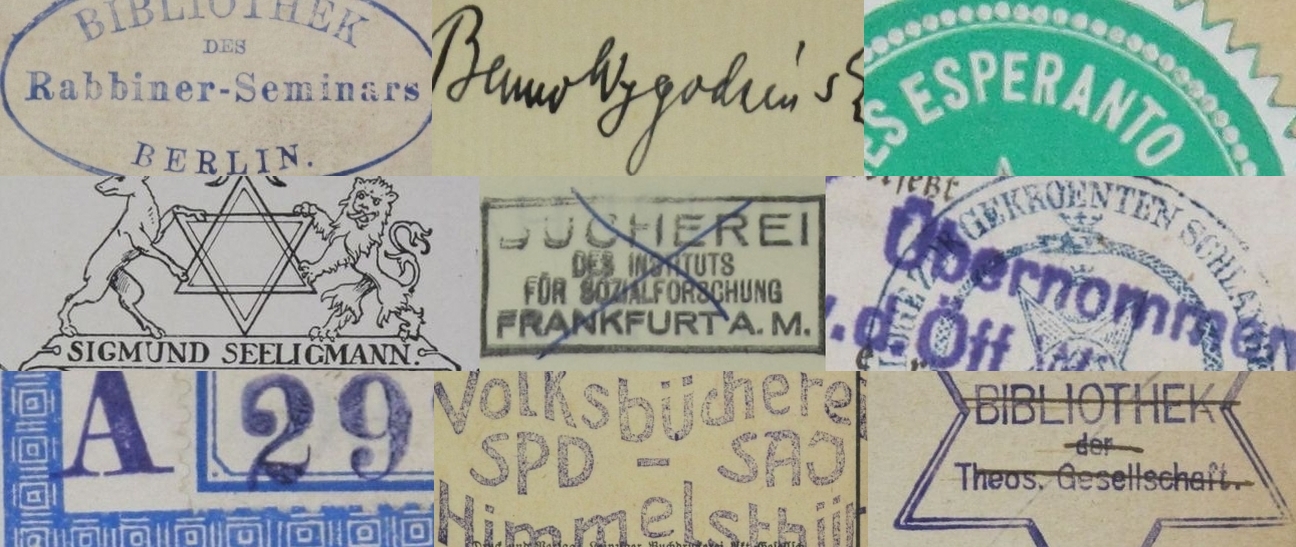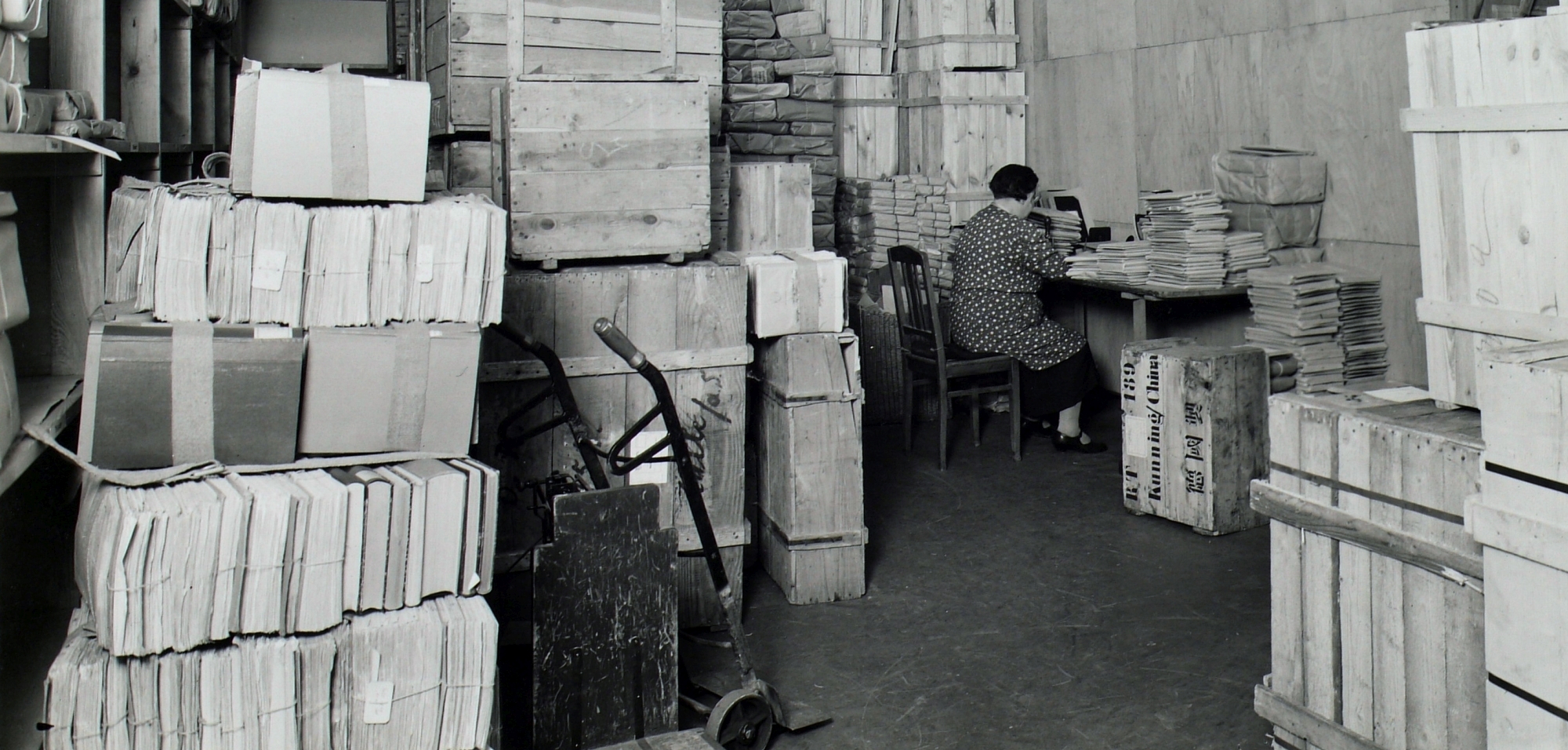Projects
Research Project “Nazi-Looted Property after 1945: The Role of the Zentralstelle für wissenschaftliche Altbestände (ZwA)“
Project Start: August 2014
Inventory for Research “Der Aktenbestand Zentralstelle für wissenschaftliche Altbestände”
German only
funded by:

This project is investigating the paths of Nazi-looted property after 1945. After the Second World War, a great number of books from remaining holdings were redistributed as they were considered to be “ownerless”. Some of them had been stored in a makeshift manner and were gathered at collection points and in libraries. The effects of war caused large losses in German libraries; the Nazi-looted books were now extensively reallocated to fill these gaps.
In the German Democratic Republic (GDR), a non-commercial central office operated from 1953 which distributed unprocessed books that had originated from various libraries in the GDR. Academic and research libraries also sent their duplicates to this center. Among the holdings transferred to the so-called Zentralstelle für wissenschaftliche Altbestände – ZwA (Central Exchange Office for Academic and Research Libraries) were also looted items that the National Socialists had taken into their institutions. These books were secured and distributed after 1945, mixed with all the other ‘unused’ holdings.
In addition, there were collections that had been expropriated as a result of land reform or confiscated after “Republikflucht” (flight from the Republic), as well as collections that had become available as a result of various administrative reforms. From 1959 until its final dissolution in 1995, the ZwA existed as an independent department at the Deutsche Staatsbibliothek and the Staatsbibliothek zu Berlin.
Research Project “Creating Transparency. Identification and Indexing of NS-Looted Books in the Collection of Printed Books of the Staatsbibliothek zu Berlin”
Project Start: September 2010 | Project End: June 2014
Funded by:
 (i.e. Arbeitsstelle für Provenienzrecherche/-forschung)
(i.e. Arbeitsstelle für Provenienzrecherche/-forschung)
This project was focussed on the systematic processing of approximately 11,000 acquisitions in the collection of historical printed works (approx. 3 million volumes) of the Staatsbibliothek zu Berlin that had been assessed as particularly suspicious.
Three methodological approaches were followed in the project:
- Examination of the accession numbers recorded in the internal Index-Datenbank zweifelhafter Zugänge IDZZ (Index Database of Doubtful Accessions) and title determination in the accession journal, determination of the copies in question in the online catalog and other reference systems
- Examination of copies listed in the Alphabetischen Zettelkatalog AK II (Alphabetical Card Catalog), especially from the confiscated library of the Institut für Sozialforschung in Frankfurt/Main (Institute for Social Research)
- Inventory check of signature areas in the stacks that are particularly suspected of being looted
Research Project “Reichstauschstelle and Preußische Staatsbibliothek between 1933 and 1945. Aspects of the Supply of Literature under the Nazi regime”.
From 2006 to 2009 / 2013
Cornelia Briel: Beschlagnahmt, erpresst, erbeutet. NS-Raubgut, Reichstauschstelle und Preußische Staatsbibliothek zwischen 1933 und 1945, Berlin 2013. ISBN 9783050049021. – Online (fee required): https://doi.org/10.1524/9783050089577
funded by:
Fritz Thyssen Stiftung für Wissenschaftsförderung / Arbeitsstelle für Provenienzrecherche/-forschung
In cooperation with:
Max-Planck-Institut für Geschichte (later: MPI für Wissenschaftsgeschichte)
The purpose of the project was understanding the institutional structures and library processes of the Reichstauschstelle (Reich’s Exchange Office) and the Preußische Staatsbibliothek by investigating legal and financial aspects including the regard on the actions of the involved people and the political dimensions of the processes and procedures .
Considerable amounts of literature, confiscated from so-called enemies of the Reich and persecuted Jews, were distributed to academic libraries and other institutions in the Reich. The research has shown that both the Preußische Staatsbibliothek and the Reichstauschstelle, were at the center of a network organizing this exchange. A new insight in this context is the extent to which, from about 1936 onward, both institutions were in competition with Nazi institutions and designated Nazi looting organizations (such as various SS institutions or the Einsatzstab Reichsleiter Rosenberg). Despite decrees from the Reichsfinanzministerium regarding the acquisition of expropriated and confiscated literature, the two institutions were ultimately not able to hold their own against the Nazi institutions.


